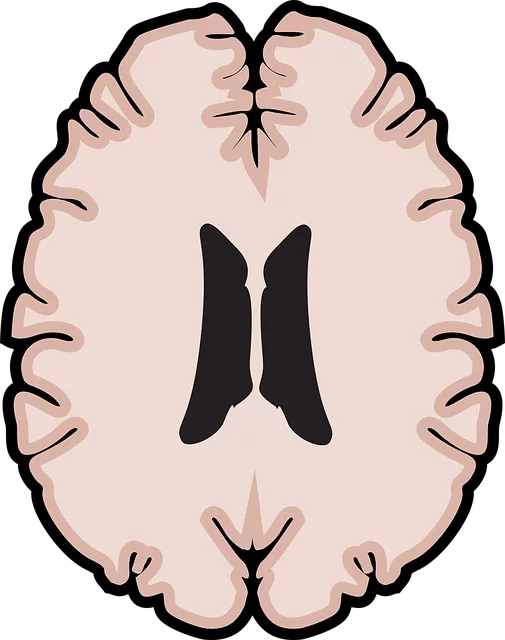Kaiser Permanente mental health centers in Colorado Springs focus on proactive risk assessment and patient-centered care, as highlighted in favorable Kaiser Permanente mental health center reviews Colorado Springs. They combine innovative practices with Mind Over Matter principles, advocate for evidence-based Mental Health Policy, and implement harm minimization strategies like stress management workshops. The center fosters self-care, resilience, and compassionate healing environments through tailored interventions, community outreach, and ongoing program evaluations.
Risk assessment and harm minimization planning are essential components of high-quality mental health care. This comprehensive guide explores these critical strategies, drawing insights from Kaiser Permanente Colorado Springs, a leading mental health center renowned for its safety practices. We delve into practical harm minimization strategies, patient-centered risk management, and continuous improvement methodologies. Informed by best practices, including Kaiser Permanente mental health center reviews, this article offers valuable lessons for healthcare professionals aiming to enhance patient safety.
- Understanding Risk Assessment in Mental Health Care
- Kaiser Permanente Colorado Springs: A Model for Safety
- Harm Minimization Strategies: Practical Application
- Patient-Centered Approach to Risk Management
- Continuous Improvement: Evaluating Success and Learning
Understanding Risk Assessment in Mental Health Care

In the realm of mental health care, risk assessment is a vital tool used by professionals at Kaiser Permanente mental health centers, such as those in Colorado Springs, to ensure patient safety and well-being. It involves a comprehensive evaluation of an individual’s current state, including their history, symptoms, and potential risks, to predict and prevent harm. This process goes beyond identifying dangers; it focuses on understanding the underlying factors contributing to a person’s mental health challenges, enabling tailored interventions.
The Public Awareness Campaigns Development and Inner Strength Development are enhanced by effective risk assessment as it empowers mental health professionals to deliver proactive care. By integrating this practice into their workflow, centers like Kaiser Permanente in Colorado Springs can better serve their communities, ensuring that individuals receive the necessary support to build resilience and navigate their mental health journeys with reduced risks of harm. This approach aligns with the broader goal of Risk Assessment for Mental Health Professionals to provide evidence-based practices that promote positive outcomes.
Kaiser Permanente Colorado Springs: A Model for Safety

Kaiser Permanente Colorado Springs stands as a beacon of excellence in mental health care, renowned for its comprehensive approach to patient safety and well-being. This leading mental health center has garnered positive Kaiser Permanente mental health center reviews, highlighting its commitment to innovative practices and patient-centric services. By integrating Mind Over Matter principles into their treatment plans, the organization fosters a holistic healing environment. Their focus on stress management workshops within the organization empowers individuals with valuable tools to navigate life’s challenges.
Beyond exceptional care, Kaiser Permanente Colorado Springs actively engages in Mental Health Policy Analysis and Advocacy, ensuring that their practices align with the latest research and community needs. This multifaceted approach not only improves individual outcomes but also contributes to a broader understanding of mental health management, setting a standard for other healthcare providers to follow.
Harm Minimization Strategies: Practical Application

Harm Minimization Strategies, when practically applied, offer a powerful toolkit for mitigating risks and fostering well-being, particularly in settings like the Kaiser Permanente mental health center reviews Colorado Springs highlight. These strategies are not one-size-fits-all but tailored to address specific challenges within diverse communities. For instance, stress management workshops, inspired by Mind Over Matter Principles, have proven effective in corporate environments, boosting employee confidence and productivity.
By incorporating such initiatives, organizations can create supportive ecosystems that encourage open conversations about mental health concerns. This proactive approach not only minimizes harm but also promotes a culture of resilience and adaptation, essential for navigating today’s complex social landscape.
Patient-Centered Approach to Risk Management

At the heart of risk assessment and harm minimization planning at the Kaiser Permanente mental health center in Colorado Springs lies a patient-centered approach. This strategy places the individual’s needs, preferences, and goals at the forefront of care delivery. By empowering patients to actively participate in their treatment plans, the center fosters self-care practices that strengthen resilience and promote well-being. The implementation of innovative community outreach programs further enhances this paradigm by connecting individuals with supportive networks and resources beyond the clinical setting.
This patient-focused approach is also infused with compassion cultivation practices designed to create a safe, non-judgmental space for healing. By cultivating empathy and understanding within the healthcare environment, the mental health center ensures that patients feel seen, heard, and valued. This holistic care model, combined with the comprehensive services offered by Kaiser Permanente, contributes to improved patient outcomes and a deeper sense of fulfillment in the lives of those seeking mental health support in Colorado Springs.
Continuous Improvement: Evaluating Success and Learning

At Kaiser Permanente mental health centers in Colorado Springs, continuous improvement is a cornerstone of their approach to providing quality care. Regularly evaluating program success and learning from client feedback is integral to enhancing services. By soliciting input from clients, such as those who’ve received treatment for anxiety relief, healthcare providers gain valuable insights into the effectiveness of interventions. This process allows them to refine practices, ensuring that the most up-to-date crisis intervention guidance is implemented.
The mental health team’s commitment to cultural competency training also plays a significant role in this continuous improvement cycle. By understanding and addressing the unique needs of diverse client populations, they can tailor services more effectively. This holistic approach, backed by robust evaluation methods, contributes to the overall success of harm minimization planning, as evidenced by positive Kaiser Permanente mental health center reviews from Colorado Springs clients.
Risk assessment and harm minimization planning are essential components of providing safe and effective mental health care. As evidenced by Kaiser Permanente Colorado Springs’ successful implementation of comprehensive safety measures, a structured approach can significantly reduce potential risks. By adopting practical strategies, such as patient-centered risk management, healthcare providers can ensure better outcomes while navigating complex cases. Continuously evaluating and learning from these processes enables continuous improvement, ultimately fostering a culture of safety. For those seeking insights into best practices, the Kaiser Permanente mental health center reviews in Colorado Springs offer valuable lessons in harm minimization planning.






